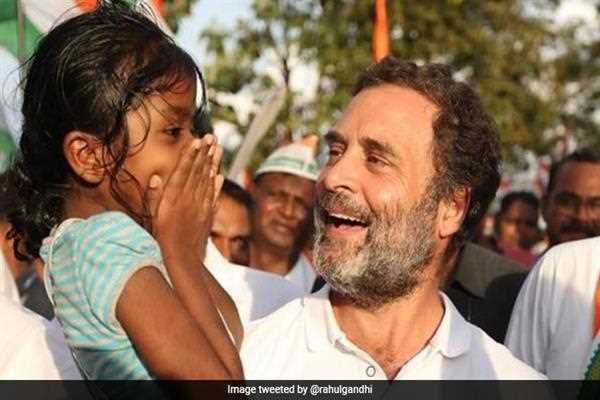Rahul Gandhi is an Indian politician who is the current President of the Indian National Congress, one of the two major political parties in India. He is also the chairperson of the Nehru-Gandhi dynasty.Rahul Gandhi was born in New Delhi on June 19, 1970, into a family of politicians. His father, Rajiv Gandhi, was the Prime Minister of India from 1984 to 1989, while his grandfather, Jawaharlal Nehru, was the first Prime Minister of India, serving from 1947 until his death in 1964. His great-grandfather, Motilal Nehru, was also a prominent Indian independence leader. Rahul Gandhi's mother, Sonia Gandhi, is an Italian-born naturalized Indian citizen who serves as the President of the Indian National Congress.
Rahul Gandhi has a bachelor's degree in economics from St. Stephen's College, Delhi and a master's degree in development economics from the University of Cambridge. He later worked at the Monitor Group, a management consulting firm, in London.
Rahul Gandhi returned to India in 2004 and contested elections for the first time in the general elections that year. He was elected to the Lok Sabha, the lower house of the Indian Parliament, from the constituency of Amethi in Uttar Pradesh. He was re-elected from Amethi in the 2009 general elections.
In the 2014 general elections, Rahul Gandhi was declared the official candidate of the Indian National Congress for the Prime Minister's post. However, the Congress party lost the elections and Rahul Gandhi resigned as the party vice-president.
Rahul Gandhi was again elected as the Congress President in December 2017.
Rahul Gandhi has been criticised for being a dynast, for his lack of experience, and for his handling of the 2019 Lok Sabha elections.
1. Rahul Gandhi is a dynast
Rahul Gandhi comes from a family of politicians. His father, Rajiv Gandhi, was the Prime Minister of India from 1984 to 1989, while his grandfather, Jawaharlal Nehru, was the first Prime Minister of India, serving from 1947 until his death in 1964. His great-grandfather, Motilal Nehru, was also a prominent Indian independence leader. Rahul Gandhi's mother, Sonia Gandhi, is an Italian-born naturalized Indian citizen who serves as the President of the Indian National Congress.
Critics have accused Rahul Gandhi of being a dynast, and have said that he is only in politics because of his family name and connections.
2. Rahul Gandhi lacks experience
Rahul Gandhi has been criticized for his lack of experience. He has only been active in politics since 2004 when he contested elections for the first time. Prior to that, he worked at the Monitor Group, a management consulting firm, in London.
Critics have said that Rahul Gandhi does not have the experience or the expertise to lead the country.
3. Rahul Gandhi's handling of the 2019 Lok Sabha elections
Rahul Gandhi was criticized for his handling of the 2019 Lok Sabha elections. The Congress party, under his leadership, failed to win a single state. In the elections, the Bharatiya Janata Party (BJP) won a landslide victory, winning 303 seats out of 543.
The Congress party's performance was seen as a personal setback for Rahul Gandhi.
4. Rahul Gandhi's comments on the Rafale deal

In 2018, Rahul Gandhi made allegations of corruption in the Rafale fighter jet deal between India and France. He claimed that Prime Minister Narendra Modi had helped a businessman close to him to get a contract for the deal.
The allegations were rejected by the Supreme Court of India, which said that there was no evidence of wrongdoing.
5. Rahul Gandhi's comments on the surgical strikes
In 2016, the Indian army carried out surgical strikes on terrorist camps across the Line of Control in Kashmir. Following the strikes, Rahul Gandhi said that the then-ruling Congress party had also carried out such strikes when it was in power.
The comments were criticised by the Bharatiya Janata Party, which accused Rahul Gandhi of trying to take credit for the army's action.